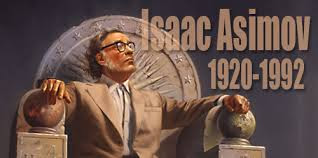Blogoversary #18
SEPTEMBER 14, 2006
I started this blog while I was still teaching, in 2006. I had just begun my 31st year as an educator.
Just like in previous years, however, I was stressed out and irritated about the standardized testing situation in Indiana. I needed to vent.
I focused the blog on testing. 2006 was in the middle of the “No Child Left Behind” unpleasantness when schools were labeled good if they catered to wealthy, upper-middle, or middle-class students and bad if they were filled with children living in poverty. This is simply because, then as now, test scores mirror a family's economic status. Rich kids, with educated parents and well-staffed and well-supplied schools score high. Poor kids, with parents who work two or three minimum-wage jobs and understaffed and underfunded schools score low. Adding injury to insult, NCLB made punishment of the so-called bad schools part of the plan.
BAD TO WORSE
Things have gone from bad to worse in the last eighteen years. Recently, I’ve complained less on these pages, only because I’ve written less due to personal health problems (only ten posts in 2022, three in 2023, and just five so far this year -- counting this one). Still, I worry about the future of public education...
- Testing is still misused and overused.
- Politicians (mostly Republicans), Indiana's included, still use every excuse to whine about the sad state of our public schools, how awful teachers (and their unions) are, and how our children are being shortchanged.
- There is still a crisis of teacher shortages around the country.
- Children are still being murdered in their schools because the nation is too afraid of the gun lobby to stand up to gun fanatics.
- Vouchers and charter schools still drain money from public schools at increasing rates despite the fact that they do no better than public schools.
- Teachers are still undervalued and underpaid.
- Public school libraries are being attacked by right-wing activists who want to censor our nation's history, black and LGBT+ narratives, and other books that most of them haven't read.
1) Teaching is a predominantly female career and women don't get the pay or respect men get.
2) We, as a nation, talk a good game but we really just don't give a damn about our children and their future.
3) The nation is in political turmoil trying to recover from COVID and its resulting economic impact. This has led to an increase of right-wing attacks on America's tax-supported institutions...including public education.
MOVING FORWARD
I regularly badger my local representatives about public education, but, being Republicans, they either are too afraid of their leadership to speak out in favor of public schools or, as I suspect is true, don’t really care about public schools. In their mind it’s “socialism” and we can’t have that, now, can we? I sometimes feel like they don't hear me either. My state representative is (or was, I can't recall) a board member for our local Lutheran schools (voucher recipients -- no conflict of interest there!), and my state senator is a doctor who introduced a bill forbidding parents from providing gender-affirming care for their children. So much for "parental rights."
I’m not giving up. I’m hopeful that the young people of the nation take charge, insist that schools are fully funded, and insist that teachers are given the credit and pay they deserve. With luck, our former superintendent of public instruction will become Indiana's new governor and things will start to change for the better. Note that this is a very red state (aka "the Mississippi of the Midwest") so, while I'm hopeful, I'm not holding my breath.
In the meantime, make sure you register to vote. Here are a couple of good posts to get your blood flowing and motivated to vote for pro-public education candidates...
Fixing Public Schools Again and Again
School reformers have a bad habit. Over the past century, they have skipped from one big policy fix to another without analyzing what happened the first time around. Or even whether the reforms succeeded or failed.
ALEC Has A New Voucher Push
...the current voucher pitch-- we're no longer trying to sell them as refuge for students stuck in "failing" schools, because we now know that the data shows that vouchers aren't better at all. And voucherites have fully adopted the goal of universal vouchers because A) it gets them closer to full privatization and B) rich, well-connected people make way better political allies than poor people.
🚌🚌🚌














